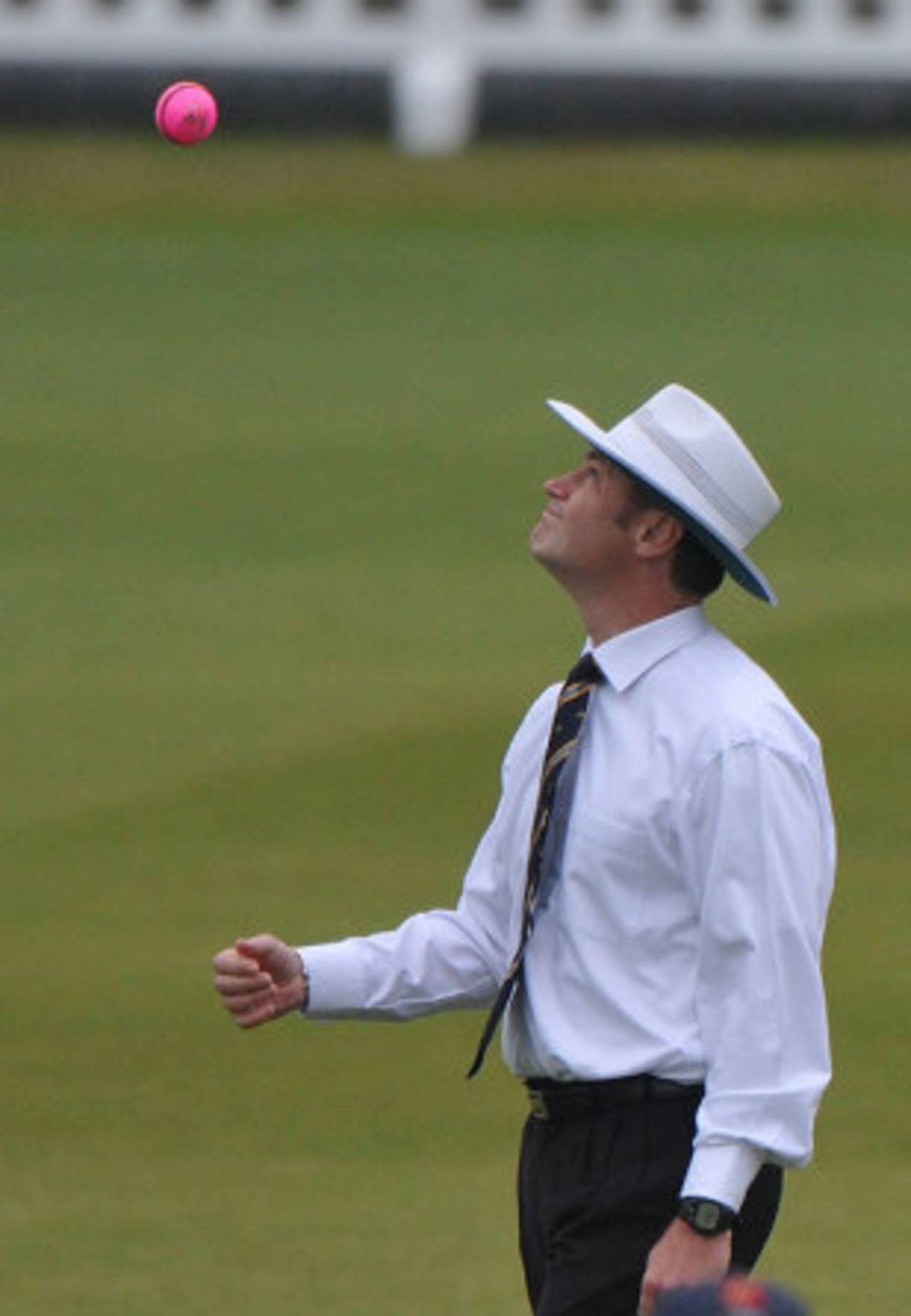Home umpires could be used for Ashes
The ICC could allow Australian and English umpires to stand in the Ashes series later this year
Brydon Coverdale at Bellerive Oval
18-Jan-2010

Simon Taufel spends most of his work time on the road • Matt Bright
The ICC could allow Australian and English umpires to stand in the Ashes series later this year as its confidence with the umpire decision review system continues to grow. Despite the controversial video-official judgments in the Johannesburg Test over the past few days, David Morgan, the ICC president, said the UDRS was proving successful enough for the ICC to consider scrapping the neutral-umpire system.
"The decision review system is making good progress," Morgan told Cricinfo. "There have been problems at the Wanderers that I can't go into because that's being investigated by the International Cricket Council. But I think the progress with the DRS has been extremely good indeed, to the extent that I think we should be thinking about the best umpires being appointed to Test match cricket irrespective of whether they come from the participating teams or not."
That could mean the man judged as the world's best umpire for five of the past six years, the Australian Simon Taufel, being able to officiate in Ashes games. Apart from the Super Test of 2005, Taufel last stood in a home Test in 2001. Five of the 12 members of the ICC's elite panel of umpires are from Australia or England, leaving only seven neutrals to choose from when the two countries meet.
Morgan did not rule out abandoning the neutral system in time for the 2010-11 Ashes in Australia. "It's a possibility," Morgan said. "I wouldn't put it any higher than a possibility but I think that in the fullness of time it's more probable than possible."
Morgan's comments have come after a fractious England-South Africa Test at the Wanderers, where the Australian third umpire Daryl Harper was under fire for ruling Graeme Smith not out despite a loud noise from the stump microphone when the ball passed the bat. Smith went on to score a century and it prompted England, who are not in favour of the review system, to make an official complaint to the ICC.
Despite England's objections, Morgan was confident the ICC's member nations could be convinced to discard the notion that neutral umpires were necessary. "I haven't put that to the test," Morgan said. "But I know that certain countries are very supportive and certain countries were wishing that it should happen even before DRS was thought about."
Not since 2002 has the ICC appointed umpires from participating countries to Test matches. The small panel and ever-increasing schedule means that the elite officials travel more than ever, and it is a job that before his retirement last year Steve Bucknor described as a sometimes lonely profession.
Taufel, who has a young family, has previously stated that he was taking his future year by year and in the past 12 months has stood in international matches in seven nations. The English official Peter Willey declined an invitation to join the elite panel due to the amount of travel involved, and Morgan said he thought the ICC's umpires would be supportive of doing away with the neutral-umpire system.
"I imagine so," Morgan said. "If you think of the international cricket schedule, with the exception of Pakistan, all international cricketers play about half their cricket at home. International umpires stand in away games only. That makes it a much more difficult lifestyle for them, to the extent that some very good umpires have declined appointment to the elite panel simply because they don't want to be away throughout the working schedule."
Brydon Coverdale is a staff writer at Cricinfo